The Psychology of Money and Same As Ever Book By Morgan Housel
$15.86 – $27.35
Explore timeless wisdom on wealth, behavior, and decision-making with The Psychology of Money and Same As Ever by Morgan Housel. Both books offer profound insights into how emotions, habits, and perspectives influence our relationship with money and life. Whether you’re seeking financial literacy, personal growth, or a better understanding of human nature, Housel’s thought-provoking narratives are essential reads. With relatable anecdotes and practical advice, these books provide a fresh lens on money management and navigating life’s uncertainties.
Description
The Psychology of Money and Same As Ever Book By Morgan Housel
Specifications:
- Hign-concerned Chemical: None
- Language: English
- Age: ADULT
- Condition: New
- Origin: Mainland China
Delve into the intricacies of human behavior, financial decision-making, and life perspectives with two of Morgan Housel’s most acclaimed works: The Psychology of Money and Same As Ever. Known for his ability to distill complex ideas into relatable stories and practical insights, Housel brings a unique perspective to understanding wealth, happiness, and the broader human experience. Through engaging narratives, compelling examples, and research-backed observations, these books offer readers a comprehensive understanding of how our thoughts, emotions, and habits shape the way we view money and navigate life.
In The Psychology of Money, Housel explores how our relationship with money is influenced more by behavior and mindset than by numbers and financial data. The book emphasizes that wealth isn’t just about knowledge or IQ—it’s about how we make decisions, handle risk, and define success. With chapters that delve into topics like “The Seduction of Pessimism,” “Getting Wealthy vs. Staying Wealthy,” and “The Power of Compounding,” The Psychology of Money reveals the often overlooked truths about personal finance and the hidden factors that determine our financial outcomes.
Meanwhile, Same As Ever takes a broader look at life’s patterns and constants, offering insights into how the more things change, the more they remain the same. Drawing on history, psychology, and personal observations, Housel argues that while technology, markets, and economies evolve, human nature remains largely unchanged. By understanding these constants, readers can better navigate uncertainty and appreciate life’s enduring patterns. With its focus on timeless truths and the universal experiences that define us, Same As Ever is a must-read for anyone seeking clarity amidst life’s complexities.
The Psychology of Money: Timeless Lessons on Wealth, Greed, and Happiness
The Psychology of Money is a groundbreaking exploration of how human psychology impacts financial decisions. Unlike typical finance books that focus solely on strategy and numbers, Housel’s work dives deep into the emotional and behavioral side of money management. Through 20 concise chapters, he shares stories of greed, risk, fear, and joy—highlighting how individuals of different backgrounds and experiences approach wealth differently.
- Behavior Over Theory: The book emphasizes that financial success is more about behavior than theory. It’s not about mastering complex formulas or being smarter than everyone else; it’s about controlling your emotions, understanding your biases, and making decisions based on your long-term goals.
- Why Being Rich and Staying Rich Are Two Different Things: Housel explains that getting rich is about taking risks, while staying rich is about avoiding them. This distinction is crucial, as it underscores the importance of balancing ambition with prudence.
- The Role of Luck and Risk in Success: One of the key takeaways is that luck and risk are two sides of the same coin. People often attribute success solely to effort and intelligence, but Housel argues that luck and timing play significant roles that are often underestimated.
- The Power of Compounding: Through vivid examples, Housel illustrates the power of compounding and how small, consistent actions can lead to significant long-term growth—both in wealth and in personal development.
- Perfect for All Levels of Financial Literacy: Whether you’re new to finance or a seasoned investor, The Psychology of Money is accessible and enlightening. Housel’s clear, engaging writing style makes complex topics easy to understand, while his thought-provoking insights encourage readers to rethink their relationship with money.
Same As Ever: A Guide to Navigating Life’s Constants
Same As Ever is a philosophical exploration of life’s patterns and the constants that define our existence. In a world that often feels chaotic and unpredictable, Housel suggests that understanding these constants can provide comfort and clarity. By focusing on what remains unchanged—our basic human needs, emotions, and responses to uncertainty—Housel shows readers how to approach change with a sense of stability and confidence.
- Understanding Human Nature: Housel argues that while external factors—like technology and social trends—may change, human nature is remarkably consistent. This constancy offers a roadmap for navigating change, as recognizing recurring patterns can help us anticipate challenges and seize opportunities.
- Clarity Amidst Complexity: The book is filled with historical anecdotes and personal stories that illustrate how the fundamental drivers of human behavior remain the same, even as the world around us evolves. From the psychology of fear to the search for meaning, Housel delves into the universal experiences that shape our lives.
- Embracing Life’s Uncertainties: Housel emphasizes that uncertainty is a permanent fixture in life, and trying to predict the future is often futile. Instead, he advocates for embracing uncertainty and focusing on the constants that guide us—values like resilience, empathy, and patience.
- Applying Timeless Wisdom to Modern Challenges: The book offers practical advice for applying these timeless lessons to modern dilemmas, whether it’s managing stress, finding purpose, or making big life decisions. By understanding what has remained the same across generations, readers can gain a deeper sense of perspective and navigate life’s ups and downs with greater wisdom.
Why Read Both Books?
While The Psychology of Money focuses primarily on financial behavior and decision-making, Same As Ever takes a broader look at life’s recurring patterns and constants. Together, these books provide a holistic view of how our thoughts, emotions, and habits influence not only our relationship with money but also our overall approach to life.
- Complementary Perspectives: Reading both books gives a well-rounded understanding of human behavior—from the specific financial insights of The Psychology of Money to the broader life lessons of Same As Ever. Each book complements the other, offering unique perspectives that deepen your understanding of yourself and the world around you.
- Perfect for Personal Growth and Financial Literacy: Whether you’re looking to improve your financial literacy, gain better control over your emotions, or simply gain a clearer perspective on life, these books provide invaluable guidance. With Housel’s engaging storytelling and research-backed insights, you’ll come away with a deeper appreciation for the nuances of human nature and the complexities of decision-making.
A Thoughtful Gift for All Occasions
The Psychology of Money and Same As Ever by Morgan Housel are perfect gifts for anyone interested in personal finance, psychology, or personal growth. Ideal for birthdays, graduations, or as a thoughtful present for someone embarking on a new financial journey, these books offer timeless wisdom and practical advice that can be revisited time and again.
Dive Deep into the Wisdom of Morgan Housel with The Psychology of Money and Same As Ever
Gain a profound understanding of wealth, behavior, and life’s constants with two of the most insightful books by Morgan Housel: The Psychology of Money and Same As Ever. In these books, Housel combines his expertise in finance with a keen understanding of human nature, creating a narrative that resonates far beyond traditional financial advice. Through engaging stories, real-world examples, and timeless wisdom, these books explore the hidden forces that shape our decisions about money and life. Whether you’re new to personal finance or a seasoned investor, these books will transform how you think about wealth, happiness, and success.
With The Psychology of Money, Housel shifts the focus from numbers and spreadsheets to the emotional and psychological aspects of financial decision-making. He delves into how personal experiences, biases, and emotions influence our approach to wealth, often more than facts or financial expertise. Meanwhile, Same As Ever takes a broader perspective, focusing on life’s constants and the enduring patterns that define human behavior, regardless of external circumstances. Together, these books provide a comprehensive framework for understanding yourself, your relationship with money, and how to navigate life’s unpredictability with greater confidence.
The Psychology of Money: Lessons on Wealth, Behavior, and Happiness
The Psychology of Money is a must-read for anyone who wants to understand the complex relationship between money and human behavior. Housel’s approach is unique in that he doesn’t just focus on how to make money but on how to think about it—how to make decisions that are aligned with long-term goals and personal values. This book is structured around 20 short chapters, each packed with stories, insights, and practical advice on topics like risk, reward, happiness, and investing. Housel’s key argument is that financial success isn’t solely determined by knowledge or intelligence—it’s deeply influenced by how we handle emotions and the often unpredictable nature of the world.
Key Themes and Takeaways:
- Behavior Over Knowledge: Housel emphasizes that financial success is less about having the right information and more about managing your emotions, biases, and actions. Many people with high IQs fail financially because they lack emotional discipline, while those with average knowledge but sound behavior often succeed.
- The Role of Luck and Risk: One of the book’s most compelling insights is the role of luck and risk in financial outcomes. Housel argues that success stories are often glamorized without acknowledging the critical role that luck plays. Similarly, failure can happen despite the best efforts and strategies. Understanding this balance is crucial to maintaining humility and avoiding overconfidence.
- The Power of Compounding: Through vivid examples, Housel explains the almost magical power of compounding. Small, consistent actions—whether they’re financial investments or personal habits—can lead to extraordinary outcomes over time. This principle doesn’t just apply to wealth, but also to relationships, career growth, and self-improvement.
- Getting Wealthy vs. Staying Wealthy: A recurring theme in the book is that building wealth and maintaining it are two entirely different skill sets. Building wealth often involves taking risks, making bold decisions, and seizing opportunities. Staying wealthy, on the other hand, requires caution, humility, and a keen awareness of risk.
- Defining Your Own Success: Housel encourages readers to define their own version of financial success. For some, it might mean having a large portfolio or a luxurious lifestyle, while for others, it could be financial independence, freedom, or simply peace of mind. Understanding what success means to you personally is the first step in creating a financial plan that aligns with your goals.
- Money and Happiness: Contrary to popular belief, more money doesn’t necessarily lead to more happiness. Housel explores the complex relationship between wealth and well-being, showing that the key lies in using money to gain control over your time and reduce stress, rather than in accumulating material possessions.
- The Seduction of Pessimism: In a world dominated by 24/7 news cycles and market volatility, pessimism often sounds smarter and more realistic than optimism. Housel explains why we’re naturally drawn to pessimistic narratives and how to maintain a balanced, long-term perspective in investing and life.
Same As Ever: A Guide to Life’s Constants in an Ever-Changing World
Same As Ever takes a different approach, focusing not on money specifically, but on the broader patterns and constants that define human behavior. Housel argues that while technology, markets, and social norms evolve, the core aspects of human nature—our emotions, desires, and fears—remain largely unchanged. By understanding these constants, we can better navigate the complexities of life, make more informed decisions, and find peace amidst uncertainty.
Key Themes and Takeaways:
- Human Nature is Predictably Unpredictable: Housel emphasizes that while the world around us may seem unpredictable, human reactions to change and uncertainty are surprisingly consistent. This insight helps readers make sense of seemingly chaotic situations, whether they’re in markets, relationships, or personal life.
- Embrace Change, But Recognize Patterns: While change is inevitable, Housel argues that many aspects of human behavior—such as our tendency to overreact to bad news, chase trends, or avoid discomfort—are timeless. By recognizing these patterns, we can avoid common pitfalls and approach change with a more grounded perspective.
- The Illusion of Progress: Housel explores how technology and social progress give the impression that everything is changing rapidly, yet many aspects of human life remain the same. Our desires for security, purpose, and connection are just as strong as they were centuries ago, despite all the advancements in science and technology.
- Dealing with Uncertainty: One of the book’s most valuable lessons is how to deal with uncertainty. Housel suggests that instead of trying to predict the future, it’s more practical to focus on building resilience, embracing adaptability, and understanding that uncertainty is a natural part of life.
- The Importance of Perspective: Housel’s narrative is filled with stories and anecdotes that illustrate how a shift in perspective can change the way we perceive success, failure, and happiness. By focusing on what remains constant, we gain clarity and peace of mind, even when everything around us seems to be in flux.
Complementary Themes and Broader Insights
When read together, The Psychology of Money and Same As Ever provide a comprehensive guide to understanding human behavior in both finance and life. The Psychology of Money focuses on the emotional and psychological aspects of wealth and financial decision-making, while Same As Ever offers a broader perspective on life’s constants and the patterns that shape our world.
- Behavioral Finance Meets Philosophy: Where The Psychology of Money delves into behavioral finance and decision-making, Same As Ever explores philosophical themes about life, change, and what it means to navigate uncertainty. Together, these books offer a deep dive into how we think, act, and respond to both financial and personal challenges.
- An Accessible Approach to Complex Topics: Housel’s engaging writing style, relatable stories, and ability to distill complex ideas into simple, actionable insights make both books accessible to a wide audience. Whether you’re looking to improve your financial habits or gain a clearer understanding of life’s patterns, these books will leave you with a richer perspective.
A Thoughtful Gift for Personal Growth and Financial Literacy
The Psychology of Money and Same As Ever by Morgan Housel are perfect gifts for anyone interested in personal finance, behavioral economics, or personal development. With their timeless insights and practical advice, these books offer valuable guidance for navigating both financial and personal challenges.
Invest in The Psychology of Money and Same As Ever today and gain a deeper understanding of how to thrive in an ever-changing world.
Psychology of Money
Psychology of Money
Psychology of Money
Psychology of Money
Psychology of Money
Psychology of Money




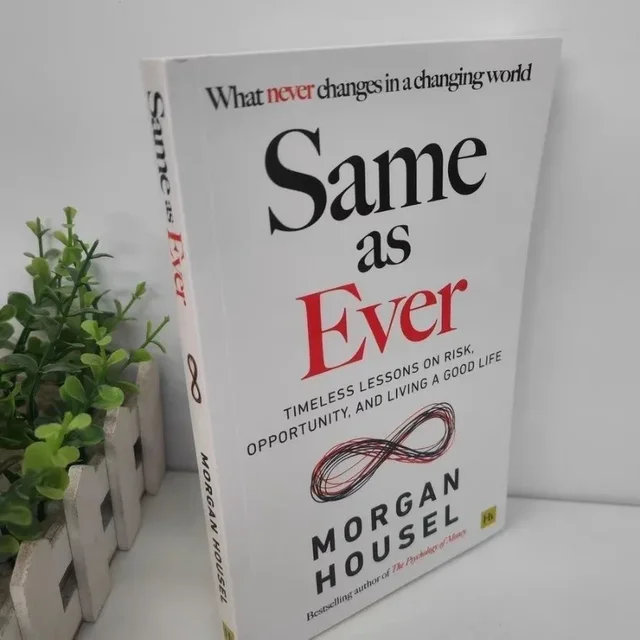
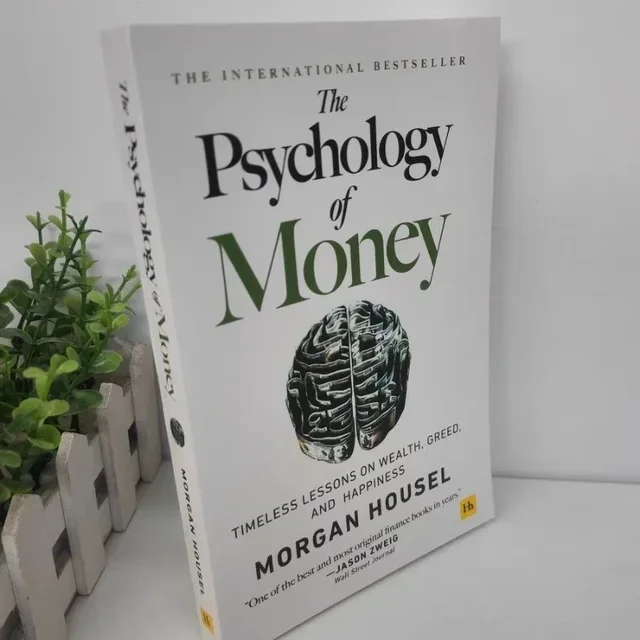
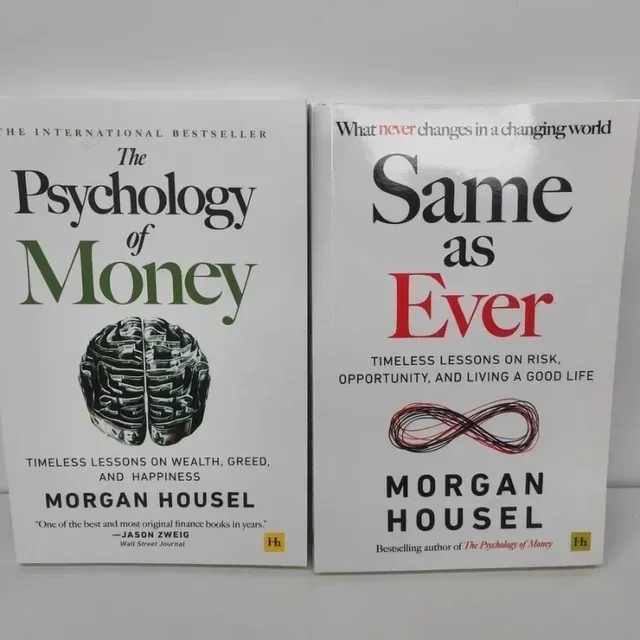

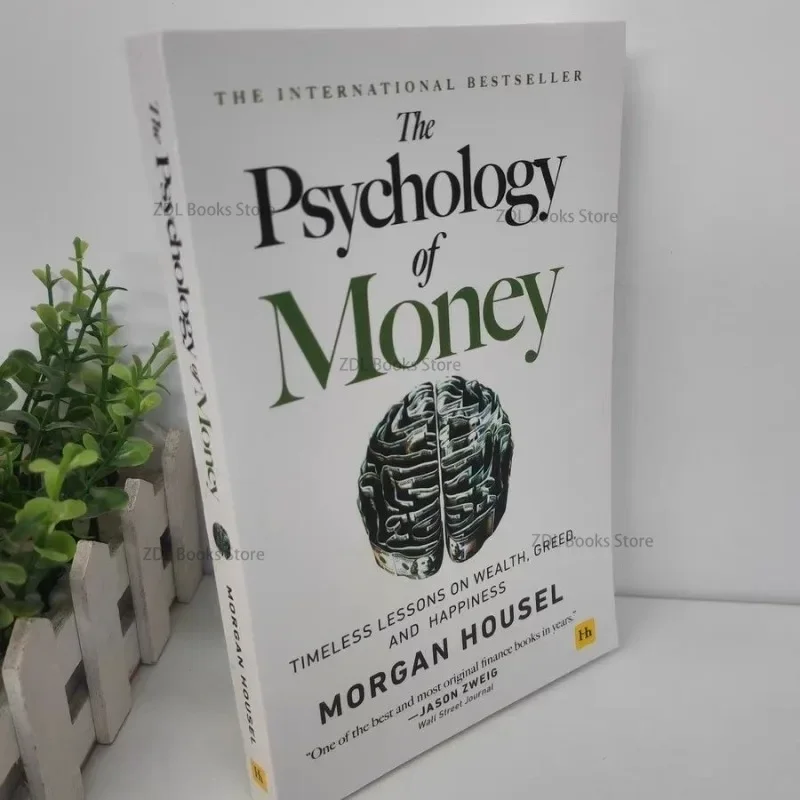
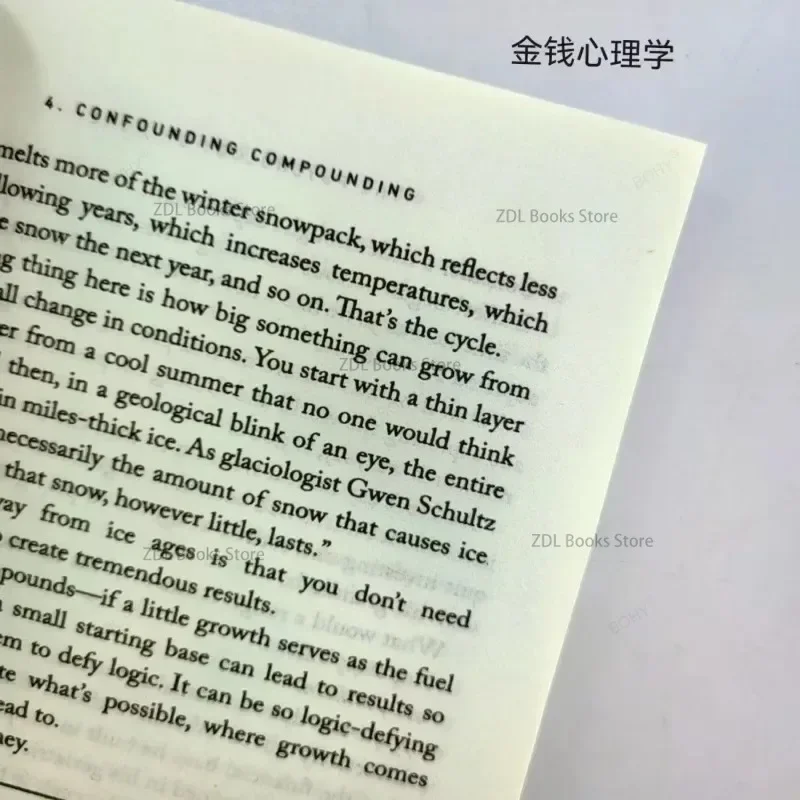
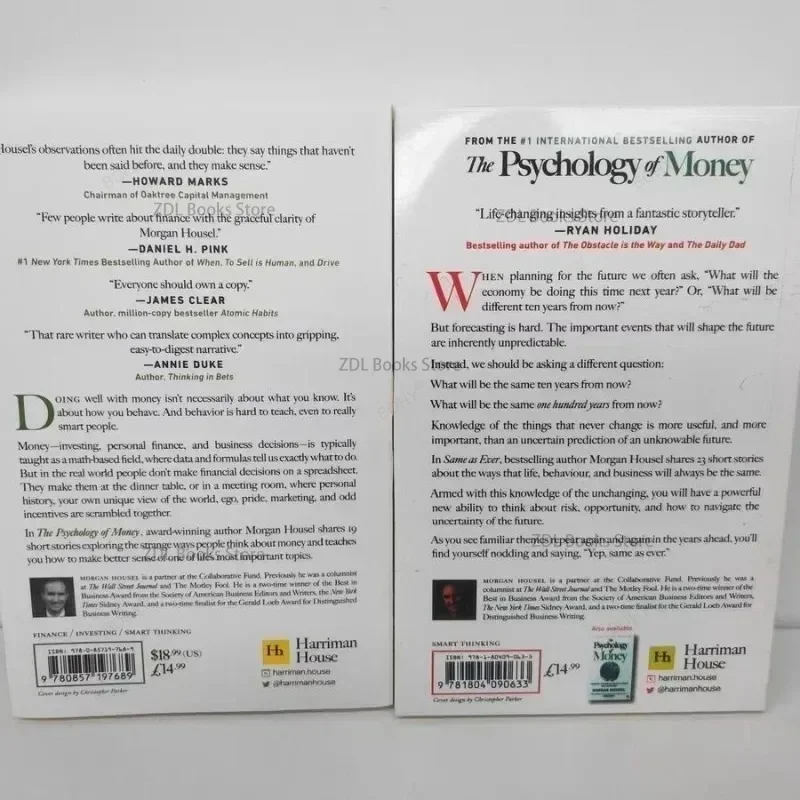



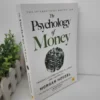
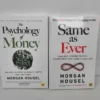



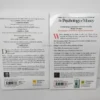








Reviews
There are no reviews yet.